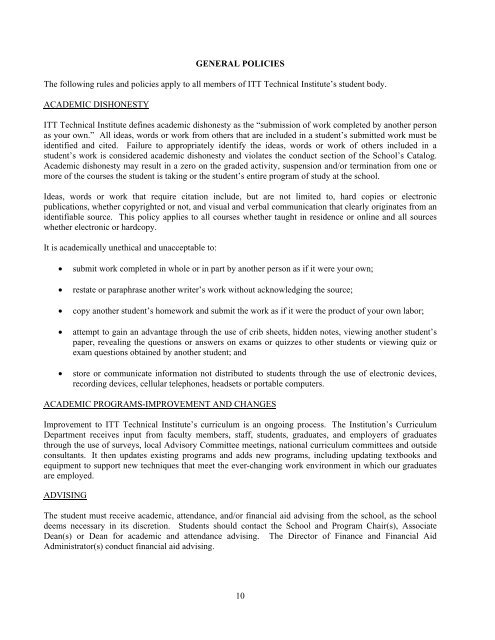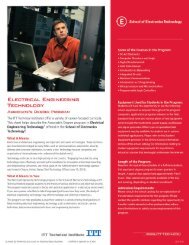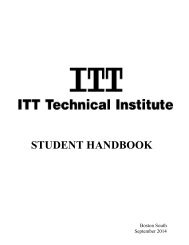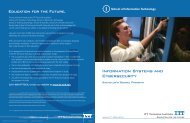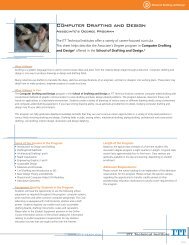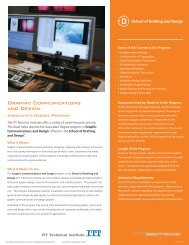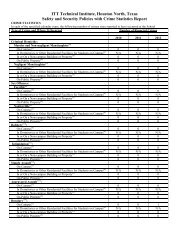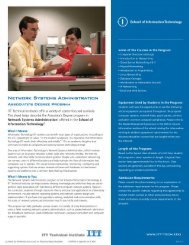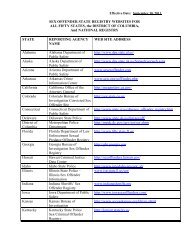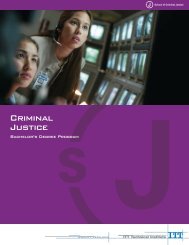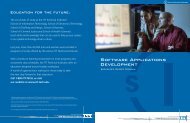STUDENT HANDBOOK - ITT Technical Institute
STUDENT HANDBOOK - ITT Technical Institute
STUDENT HANDBOOK - ITT Technical Institute
Create successful ePaper yourself
Turn your PDF publications into a flip-book with our unique Google optimized e-Paper software.
GENERAL POLICIESThe following rules and policies apply to all members of <strong>ITT</strong> <strong>Technical</strong> <strong>Institute</strong>’s student body.ACADEMIC DISHONESTY<strong>ITT</strong> <strong>Technical</strong> <strong>Institute</strong> defines academic dishonesty as the “submission of work completed by another personas your own.” All ideas, words or work from others that are included in a student’s submitted work must beidentified and cited. Failure to appropriately identify the ideas, words or work of others included in astudent’s work is considered academic dishonesty and violates the conduct section of the School’s Catalog.Academic dishonesty may result in a zero on the graded activity, suspension and/or termination from one ormore of the courses the student is taking or the student’s entire program of study at the school.Ideas, words or work that require citation include, but are not limited to, hard copies or electronicpublications, whether copyrighted or not, and visual and verbal communication that clearly originates from anidentifiable source. This policy applies to all courses whether taught in residence or online and all sourceswhether electronic or hardcopy.It is academically unethical and unacceptable to:submit work completed in whole or in part by another person as if it were your own;restate or paraphrase another writer’s work without acknowledging the source;copy another student’s homework and submit the work as if it were the product of your own labor;attempt to gain an advantage through the use of crib sheets, hidden notes, viewing another student’spaper, revealing the questions or answers on exams or quizzes to other students or viewing quiz orexam questions obtained by another student; andstore or communicate information not distributed to students through the use of electronic devices,recording devices, cellular telephones, headsets or portable computers.ACADEMIC PROGRAMS-IMPROVEMENT AND CHANGESImprovement to <strong>ITT</strong> <strong>Technical</strong> <strong>Institute</strong>’s curriculum is an ongoing process. The Institution’s CurriculumDepartment receives input from faculty members, staff, students, graduates, and employers of graduatesthrough the use of surveys, local Advisory Committee meetings, national curriculum committees and outsideconsultants. It then updates existing programs and adds new programs, including updating textbooks andequipment to support new techniques that meet the ever-changing work environment in which our graduatesare employed.ADVISINGThe student must receive academic, attendance, and/or financial aid advising from the school, as the schooldeems necessary in its discretion. Students should contact the School and Program Chair(s), AssociateDean(s) or Dean for academic and attendance advising. The Director of Finance and Financial AidAdministrator(s) conduct financial aid advising.10


